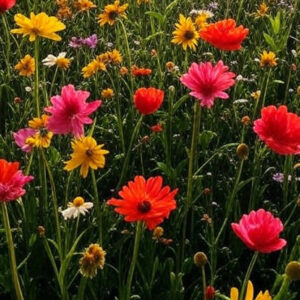What do Abe Lincoln, Amelia Earhart, and William Shakespeare have in common? In fact, you can also include Ronald Reagan, Bing Crosby, and Mozart. Not only were these all well-known people from the past, but they also have been dignified with a special award. They all have roses named after them. Although that may not seem like an award equal to an Emmy or the Nobel Peace Prize, it is still a great honor to have a new rose named for you.
do Abe Lincoln, Amelia Earhart, and William Shakespeare have in common? In fact, you can also include Ronald Reagan, Bing Crosby, and Mozart. Not only were these all well-known people from the past, but they also have been dignified with a special award. They all have roses named after them. Although that may not seem like an award equal to an Emmy or the Nobel Peace Prize, it is still a great honor to have a new rose named for you.
Plants, gardening, and horticulture are all wonderful parts of our lives. Millions of dollars are spent each spring on the sale of seedlings, seeds, and plants that are ready to be set gracefully into the soil to brighten another year. We enjoy flowers and recognize them as one of God’s special gifts. Many of us enjoy exercising our green thumbs and soiling our fingers as we plant and nurture these wonderful little blessings that beautify our homes. Perhaps that is why the name of Baal-Hanan sprouts up from the pages of Scripture.
We often neglect to consider the extensive bureaucracy it took to run the government of Israel during the period of the kings. If you read 1 Chronicles, you will get a sense of the detail expected of the leaders within David’s kingdom. Note the division of priests, singers, gatekeepers, treasurers, army divisions, officers, and the king’s overseers. An organized bureaucracy was important to keep the government functioning well. Among the names in the listing of the king’s overseers is Baal-Hanan, “the Gederite [who] was in charge of the olive and sycamore-fig trees in the western foothills” (1 Chronicles 27:28).
The horticultural love and care of God’s vegetation was as important then as it is now, and Baal-Hanan was one of the overseers. Baal-Hanan had the special privilege of spending his days as a caretaker of God’s forest of olive and sycamore-fig trees. He planted them, pruned them, picked their fruit, and probably even talked to them. We might envy Baal-Hanan and the work he performed every day. He lived his life close to nature and God’s living blessings.
How often do we take time to really stop and smell the roses? When is the last time you considered the blessings of trees and grass, flowers and shrubs? Have you counted how many days have been brightened by a simple dahlia or morning glory? How many smiles have adorned faces as they saw the first daffodil blooming in spring, smelled the aromatic lilac blossoms, or even noticed the beautiful fall foliage of trees and shrubs? Take a moment to consider how many different intricate patterns of flowers God has given us to enjoy, how many different fragrances God has provided in his blossoms, and how many colors fill God’s natural world.
Did you know that Jesus was once mistaken for a gardener? It was after his resurrection that Mary Magdalene sat beside the empty tomb and wept, wondering what had become of her Lord and Savior. Yet Jesus came to comfort her and dry her tears. “She turned around and saw Jesus standing there, but she did not realize it was Jesus. ‘Woman,’ he said, ‘why are you crying? Who is it you are looking for?’ Thinking he was the gardener, she said, ‘Sir, if you have carried him away, tell me where you have put him, and I will get him.’ Jesus said to her, ‘Mary’” (John 20:14-16).
What a beautiful exchange. Mary, thinking Jesus had come to care for the beautiful plants of the garden, soon realized that Jesus had come to care for her soul. She saw Jesus, not only the Creator of the flowers of the fields but the one who nourishes and cares for each one of us with the individual love and patience that a compassionate gardener has for each seedling.
Personal goal: Take a few moments today to study the beauty of a single flower or the majesty of a tree.

Recent Comments